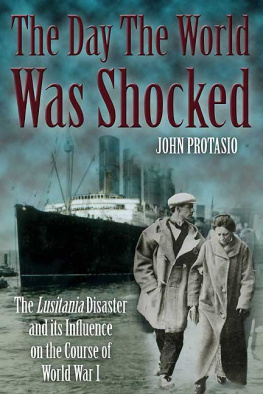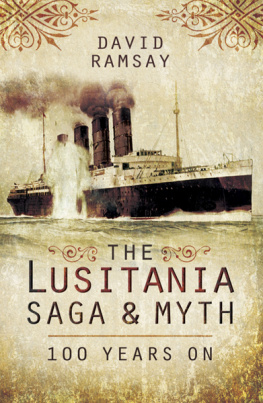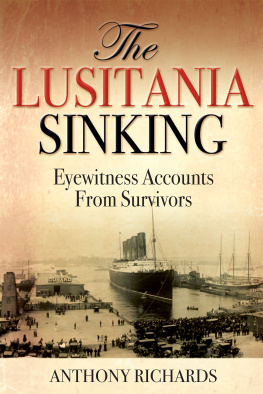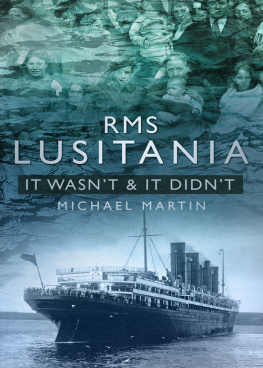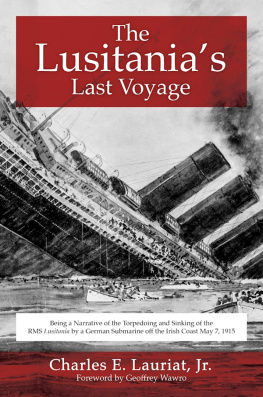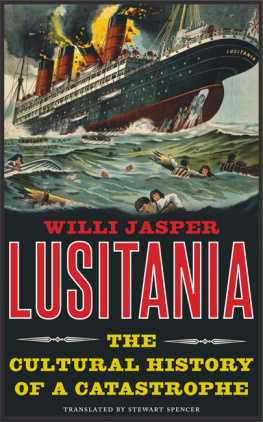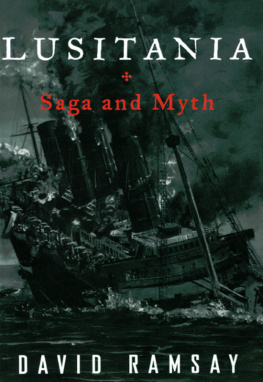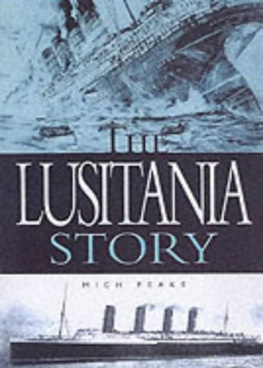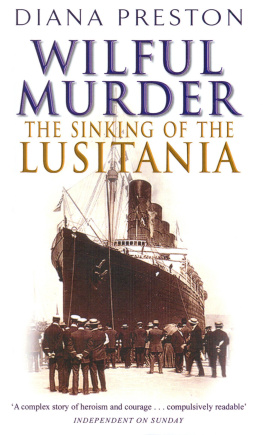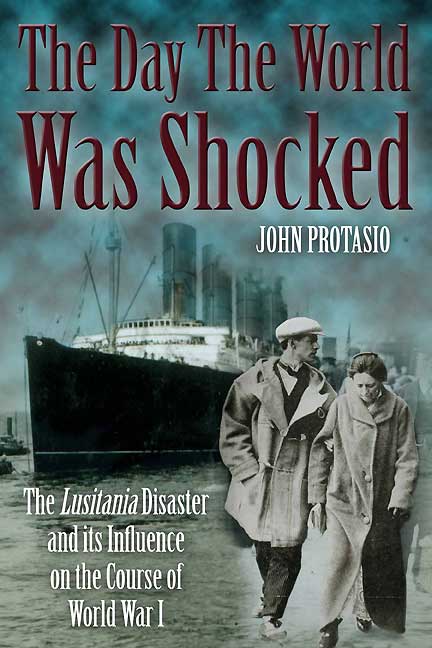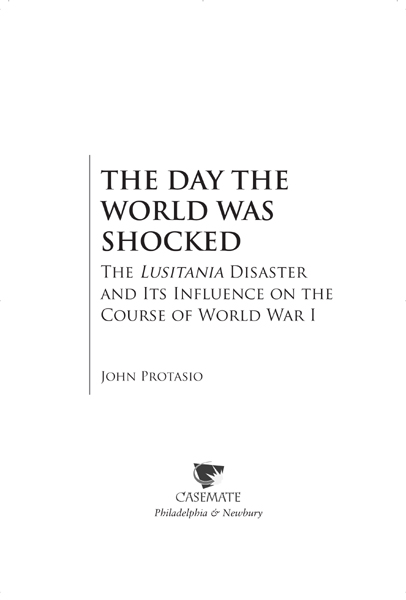John Protasio - The Day the World Was Shocked: The Lusitania Disaster and Its Influence on the Course of World War I
Here you can read online John Protasio - The Day the World Was Shocked: The Lusitania Disaster and Its Influence on the Course of World War I full text of the book (entire story) in english for free. Download pdf and epub, get meaning, cover and reviews about this ebook. year: 2011, publisher: Casemate Publishers (Ignition), genre: History. Description of the work, (preface) as well as reviews are available. Best literature library LitArk.com created for fans of good reading and offers a wide selection of genres:
Romance novel
Science fiction
Adventure
Detective
Science
History
Home and family
Prose
Art
Politics
Computer
Non-fiction
Religion
Business
Children
Humor
Choose a favorite category and find really read worthwhile books. Enjoy immersion in the world of imagination, feel the emotions of the characters or learn something new for yourself, make an fascinating discovery.
- Book:The Day the World Was Shocked: The Lusitania Disaster and Its Influence on the Course of World War I
- Author:
- Publisher:Casemate Publishers (Ignition)
- Genre:
- Year:2011
- Rating:3 / 5
- Favourites:Add to favourites
- Your mark:
The Day the World Was Shocked: The Lusitania Disaster and Its Influence on the Course of World War I: summary, description and annotation
We offer to read an annotation, description, summary or preface (depends on what the author of the book "The Day the World Was Shocked: The Lusitania Disaster and Its Influence on the Course of World War I" wrote himself). If you haven't found the necessary information about the book — write in the comments, we will try to find it.
Unlike the loss of the Titanic several years earlier, which could be attributed to nature, the destruction of the passenger-liner Lusitania came at the hands of a German U-boat, one of many which infested the Atlantic at the time, seeking destruction. Many questions, however, rage to this day. Was the liner armed? Did she carry contraband munitions in a secret effort to aid the Allies? Did the Germans set out from the start to sink this ship? Was the Lusitania deliberately allowed to sink by the supposedly protective Royal Navy in order to draw the United States into the war?
This book answers these and other questions surrounding this emotionally charged sinking. It traces the story from the time of the vessels construction to her demise, while providing a real-time look at the chaos on board once German torpedoes had shattered the ship. And what of the U-boat commander, who may either have made the greatest mistake in history or had just been performing his duty? This account deals with the diplomatic repercussions of the sinking, while also examining the human side of the story.
John Protasio, author of three previous books on maritime disasters, has here provided an expert account and analysis of the sinking that swayed a nationin fact, the worldinto a new era, as the United States finally found that it could no longer hide behind its oceans and instead felt compelled to assert itself as a global power.
John Protasio: author's other books
Who wrote The Day the World Was Shocked: The Lusitania Disaster and Its Influence on the Course of World War I? Find out the surname, the name of the author of the book and a list of all author's works by series.

